Political Experts Who Don’t Understand Politics
49 "experts in governance and democracy" to call for nonsensical reforms to the presidential debates.
Lee Hamilton and Vin Weber have “joined 47 other experts in governance and democracy” to call for nonsensical reforms to the presidential debate process. In particular:
The outcome we want is simple: to create a viable competition for a third spot on the debate stage. We don’t want a clown show, and we don’t want our debates, which are steeped in years of great tradition, to be derailed. But if a qualified candidate is not allowed to participate in the general election presidential debates, with the vast media exposure and legitimacy they confer, the party is over before it begins.
What we propose is grounded in three core principles that can provide a road map for reform and are easy for the debate commission to implement.
First, there must be a competition — not an arbitrary polling hurdle — open to all nonmajor party candidates. Second, the competition must feature direct voter engagement in order to measure a candidate’s relative strengths and legitimacy. And third, the competition must yield one winner by April 30, 2016, allowing enough time for earned media to boost his or her national name recognition, so that by Election Day it would be equivalent to the Democratic and Republican nominees.
[…]
The debate commission must stop ducking and embrace reforms by early summer or we will be stuck with yet another “closed-door masterpiece” instead of dynamic debates that provide Americans with the political choice they are desperate for. This is stifling the kind of competition that our own parties need in order to move closer to the public mood on important issues.
Now, goodness knows that there are all manner of problems with the presidential debates, both in the primaries and in the general. To the extent that debates theoretically matter in helping people decide for whom to vote—and the evidence on that is thin—the current format is awful. They’re boring, stilted, and not really debates at all but a series of mini-speeches followed by attempts to interrupt one’s opponent and get in pre-scripted zingers.
But why in the world would we want to add a third person to the debates? The last time we did that was with Ross Perot and that experience may well have been the origin of the term “clown show.”
Given our bizarre electoral system of 51 first-past-the-post contests, all but two of which are winner-take-all at-large, adding a third candidate simply acts as a spoiler. Not only would the third candidate take time away from the two candidates who have a theoretical chance of winning the presidency—aka, Hillary Clinton and a Republican nominee yet to be selected—but boosting their name recognition and legitimacy will increase the number of votes cast in favor of the least-disliked plausible winner. To the extent that 2016 is really a toss-up, Hamilton, Weber, and company are encouraging another 2000, wherein the preferred plausible candidate loses because too many of those who preferred him to the other plausible candidate instead cast their vote for an implausible candidate they’d have preferred in an ideal world.
The 39 signatories are members of something called “Level The Playing Field.” While I’m not sure I’d call all of them “experts in governance and democracy,” their number include some very prominent political scientists and a gaggle of fairly successful national level politicians along with some business and military leaders. Most of them should know better.
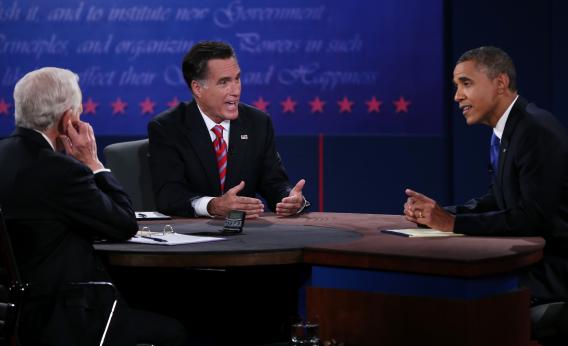

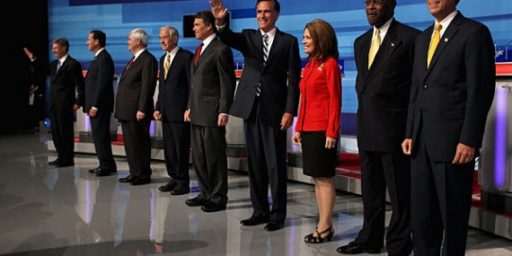
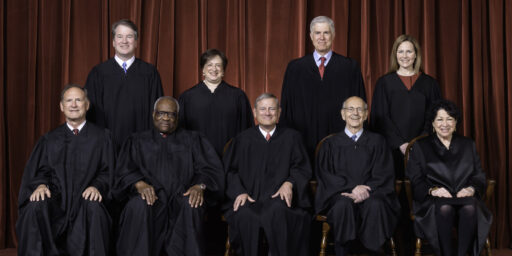

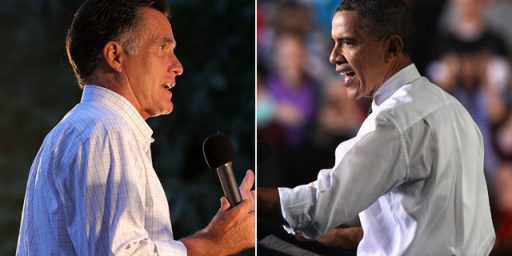
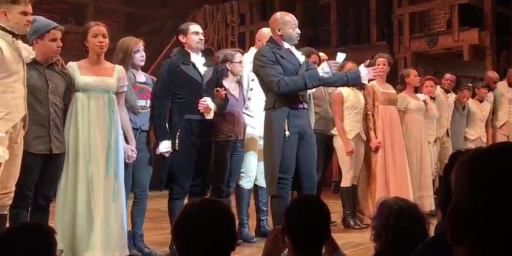
You can’t have a meaningful debate without either actual probing questions or a moderator who is willing to interrupt the speakers when their responses are not on-topic. I’m not going to hold my breath waiting for either of those things to happen. Neither party (nor the money behind them) would like that at all.
Such a thing might make sense if we didn’t have the electoral college. But we do, so it largely doesn’t. It’s a solution in search of a problem, and a solution that will cause a lot of other problems.
And even if we didn’t have the EC, it’s something that would (most years) be bound to failure, or would violate the first amendment.
Yes, because reality TV style “you choose the third candidate!” competitions has absolutely no history of producing clown shows.
More importantly, since they’re the ones who ultimately control the format, why would the two major party candidates want to add a third person to the debate?
I don’t know. Because maybe they would go off the standard talking points and provoke an actual debate? I saw the third party debate back in 2000 with Nader, Brown, etc. and they pointed out that almost all the ideas that have driven politics for the last century came from outside the two party system. If you have a third party candidate up there, the candidates can’t ignore issues they don’t want to address like the War on Drugs, mass incarceration, mass surveillance, climate change, etc. Heaven forfend!
I’m sorry, James, but I strongly disagree with you on this. The purpose of the debate is not to serve the two parties or “the system”. It’s supposed to serve the voters. And I don’t think we are served by watching two candidates exchange laundered talking points in an absolutely unchallenging format. Bringing in a third party member would change the dynamic significantly.
Yeah, given our first-past-the-post system there would be huge incentives for Democratic Party aligned partisans to try and get a Right-wing candidate in this new third party debate slot and for the the GOP to try and do the reverse.
I have a quibble with the headline. It should something like “Horse Race “Experts” Who Don’t Understand Horse Racing”
Nothing that Hamilton and Weber are proposing have anything to with politics. It’s all about Broderism and false centrism. It’s horse race stuff and H&W are spokespeople for Pete Peterson’s quixotic quest to kill the social safety net by hyping debt and deficit when both are declining. Drastically.
Peterson failed with the 2010 Simpson / Bowles Cat Food Commission, er, National Commission on Fiscal Responsibility and Reform, what was that commision’s name again? Whatevs.
Peterson wants another bite at the apple and Weber and Hamilton are his spokeslackeys. He wants his candidate / spokesperson who couldn’t get a vote in either party’s primaries to have a national stage in the general election. To deficit scold. His deficit scolding is the means to achieve his desired end – which is the elimination of the social safety net. That’s it.
The fault is not Joyner’s, but Politico’s. Talk about burying the lede. This is being unaware of the lede because you’re too ignorant to know how and why these folks are spinning you. Why was this an op / ed and not a straight reporting piece?
Stenograpghy is not reporting.
It would be like “interviewing” the PR person at Americans For Tax Reform without mentioning that it was a prepared statement, or Americans For Tax Reform, or Grover Norquist.
Pathetic. Major journalism fail. But it’s Politico, so what do you expect?
All nonmajor party candidates!
Now I know they are kidding.
Politics1 lists The “Big Three” Third Parties.
Followed by 31 smaller parties.*
I am still to be convinced that allowing any one of these 2012 candidates to participate would have provided the “dynamic debates that provide Americans with the political choice they are desperate for.”
http://www.politics1.com/parties.htm
*These are the parties that fielded candidates for President USA.
Normally I agree with you on these sorts of things. And for the most part I do here too. As mentioned by commenters above, this has all the trappings of a “feel good” maneuver, especially considering the larger hurdle to a viable “nonmajor” party candidate is the Electoral College.
However, I don’t think there’s any question that the two “major” parties enjoy their institutionalized privilege of being the only relevant option during elections, including the debates (dull and nearly useless as they are). I also think part of this institutionalized privilege of the two parties is the leading cause of these debates being so stilted and pre-formed. They’ve more or less agreed to this irrelevant format precisely because there is little room for the boat to be rocked.
So, I would be all for adding someone to the stage who is not part of this agreement and has little to lose in speaking more forthrightly. Perhaps the thought of that actually happening or affecting anything is idealistic, but I would support just about anything that would upset the election season status quo.